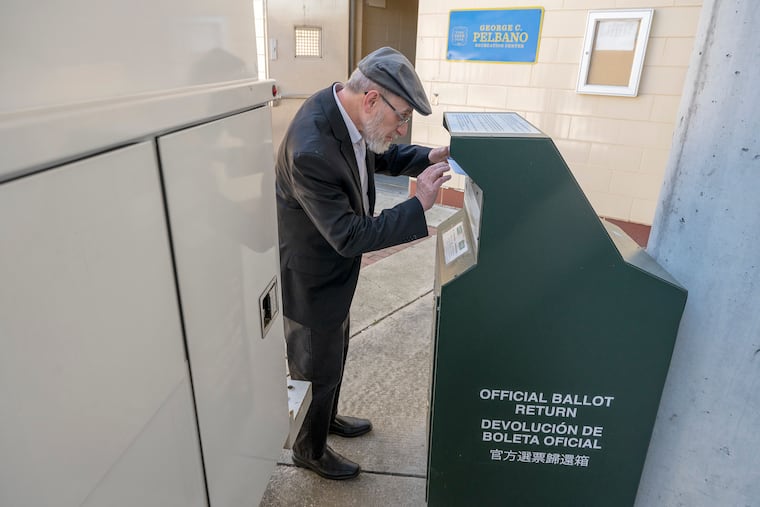Pennsylvania county must tell voters if they find errors in their ballots, court rules
The ruling could have implications ahead of the November election.

Election officials in a Western Pennsylvania county must tell voters if their mail ballots cannot be counted and record that information in a statewide voter system, a Pennsylvania court ruled Monday.
In an order issued Monday, a Washington County Court of Common Pleas judge said election officials in the county had violated voters’ statutory rights by refusing to tell them whether their mail-in ballots had been deemed invalid.
Though the case is specific to Washington County and the actions it took during the April primary, the ruling sends a signal to election officials across the state about how to handle incorrectly completed ballots November’s election approaches.
“A governmentally appointed board does not have unfettered decision making power to decide if a ballot will be cast and counted. The policy adopted by the Washington County Board of Elections clearly violated the statutory right to allow a person checks and balances against the government,” Washington County Judge Brandon Neuman said in his order.
Voters must know their vote has been rejected in order to challenge the decision, and must be allowed to cast a provisional ballot, Neuman said.
The judge’s order comes after a lawsuit by the American Civil Liberties Union of Pennsylvania and the Public Interest Law Center on behalf of voters and civic engagement groups in Washington County. It is one of several cases that aims to impact which ballots are counted in November, when Pennsylvania will play a key role in deciding the next president.
The last two presidential elections in the state were decided by roughly 1 percentage point, meaning any change to which votes are counted carries weight.
“This decision is a win for fairness and transparency in our elections in Pennsylvania and ensures Washington County voters will have an opportunity to exercise their fundamental right to vote in November,” Mimi McKenzie, legal director of the Public Interest Law Center, said in a statement.
In a statement, Washington County Commissioner Nick Sherman, the Republican who chairs the election board, lambasted the decision as an example of a judge overstepping and creating law from the bench. He said the board was considering its next steps.
“This is a page out of the national Democratic Party handbook. When they don’t agree with a state law, they weaponize the ACLU and find a liberal judge to rule in their favor,” Sherman said.
Statewide, nearly 8,000 ballots were rejected in April’s primary because of issues with the date, signature, or privacy envelope. Voting rights advocates, including the ACLU, have pushed counties across the state to adopt “notice and cure” policies to help voters remedy those issues before Election Day — and reduce the number of people disenfranchised due to errors.
In his ruling, Neuman said only the legislature can mandate counties to adopt “notice and cure” policies allowing voters to fix their ballots, but said state law already requires counties to alert voters if their ballot won’t be counted so they can challenge the decision.
The ACLU and Public Interest Law Center have been involved in numerous other similar suits challenging the state law that requires voters to write the date on their mail ballot and individual county practices regarding which mail ballots are counted.
The suits have generally sought to limit the potential for a voter to make a minor error that ultimately invalidates a ballot. The civil rights groups are arguing in state court that the date requirement should be thrown out. The ACLU is involved in a similar case alongside the NAACP in federal court.